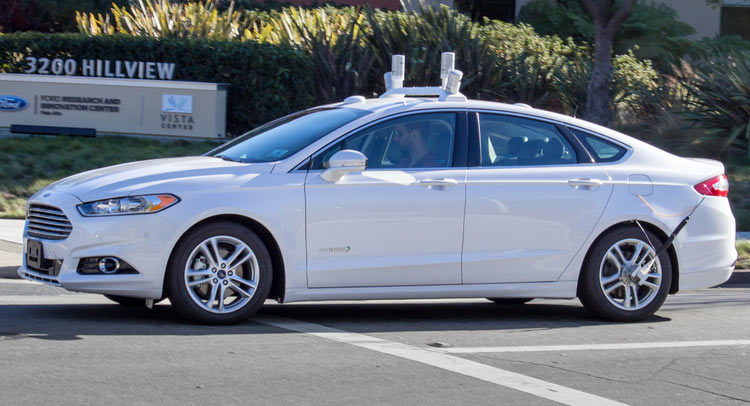After recently securing their California autonomous vehicle driving permit, Ford is ready to begin testing their self-driving Fusion Hybrid on public roads in 2016.
Right now, there are three major revolutions going on in the automotive industry. We’re talking about the field of autonomous driving, electric vehicles (hybrids too) and connectivity. Car manufacturers are investing more time and more resources into developing these technologies than ever before and legacy brands such as Ford simply cannot fall behind.
With that in mind, there are now more than 100 researchers, engineers and scientists on staff at Ford’s Research & Innovation Center in Palo Alto, one of the largest research centers in Silicon Valley.
Their goal is to supervise and develop the fully autonomous Ford Fusion Hybrid sedans that will be taking to California streets next year – and considering how 80% of the Palo Alto team has a technology background, odds are those cars are in very good hands.
“Our Palo Alto team has grown significantly this year, using research and innovation to explore and develop future mobility solutions,” said Mark Fields, Ford president & CEO. “We’re attracting top talent from around the world to join our team in Silicon Valley, including employees from local technology companies and universities who want to make people’s lives better by changing the way the world moves.”
Some of the most important research conducted at the lab this year includes autonomous vehicle virtual test drives, sensor fusion, camera-based pedestrian detection and data-driven health care.
The virtual test drive study helps replicate real-world interactions between autonomous cars and pedestrians, where eventually this will lead to responses to some of those unexpected variables. The sensor fusion study is important too because the car needs to be able to scan the road in 360-degrees and also recognize street signs, other vehicles and of course pedestrians.
Ford is also proud to have cultivated relationships with top universities such as California-Berkeley, Carnegie Mellon, Santa Clara and San Jose State. The car manufacturer is also expanding its strategic research partnership with Stanford in 2016, planning 13 Smart Mobility projects.











